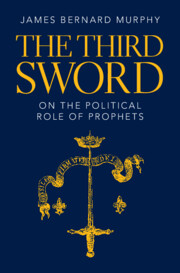Chapter 1 - The Hebrew Prophets
Published online by Cambridge University Press: 23 November 2023
Summary
Like the later prophets, the Hebrew prophets were divinely authorized whistleblowers. The prophet Nathan confronted King David over his adultery and murder; Isaiah and Jeremiah confronted their kings over their alliances with foreign powers; Elijah confronted King Ahab over the murder and dispossession of his neighbor. Prophets from Amos to Jeremiah excoriate the priests of their day for making a mockery of Temple worship by attempting to bribe God with sacrifices and pious words. The prophets insist that all religious rites must serve righteousness, that moral purity comes before ritual purity. No wonder the Hebrew prophets were condemned and persecuted by priests and kings for being both heretics and traitors. The Hebrew prophets almost never attempted to exercise priestly or political power; they simply attempted to veto the abuses of priests and kings in the name of God. The Hebrew prophets, like our later prophets, were more than merely critics; they were also visionaries of peace and social justice.
Keywords
- Type
- Chapter
- Information
- The Third SwordOn The Political Role of Prophets, pp. 9 - 36Publisher: Cambridge University PressPrint publication year: 2023

